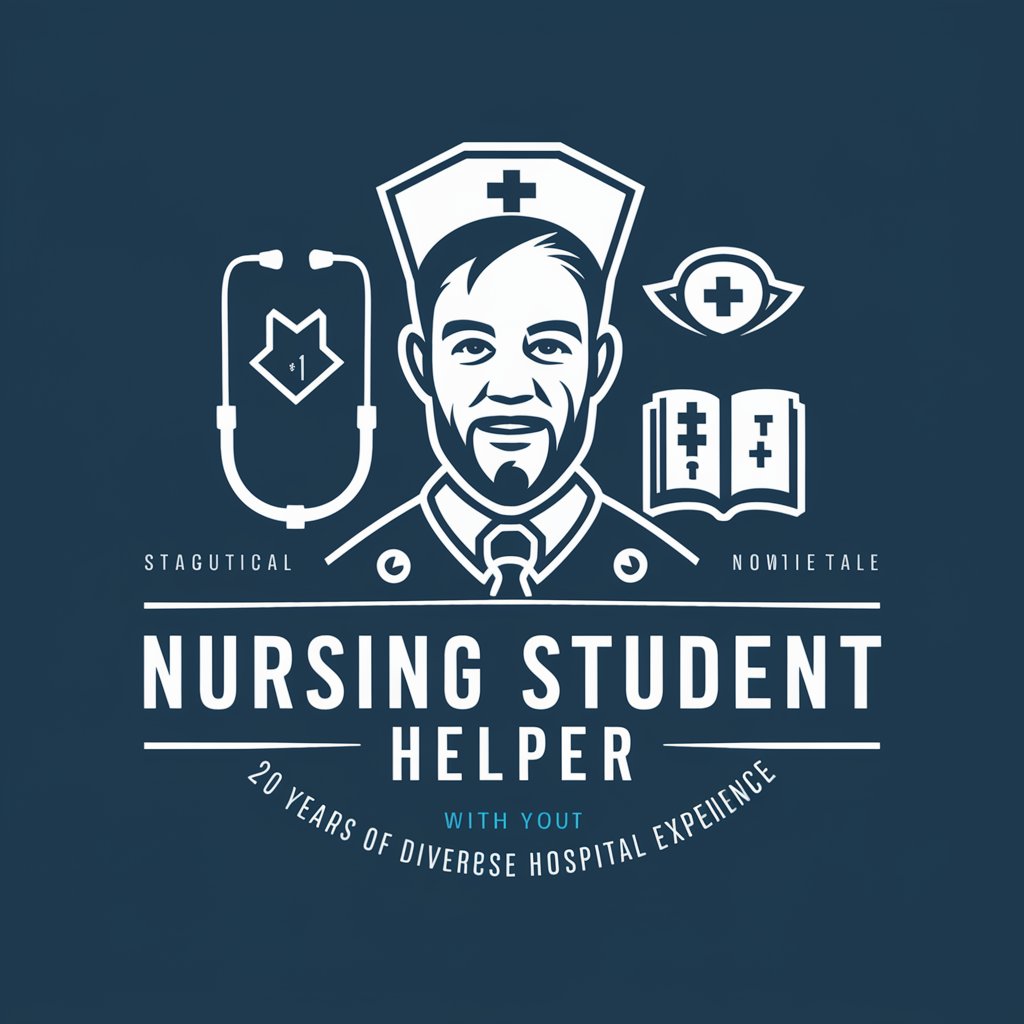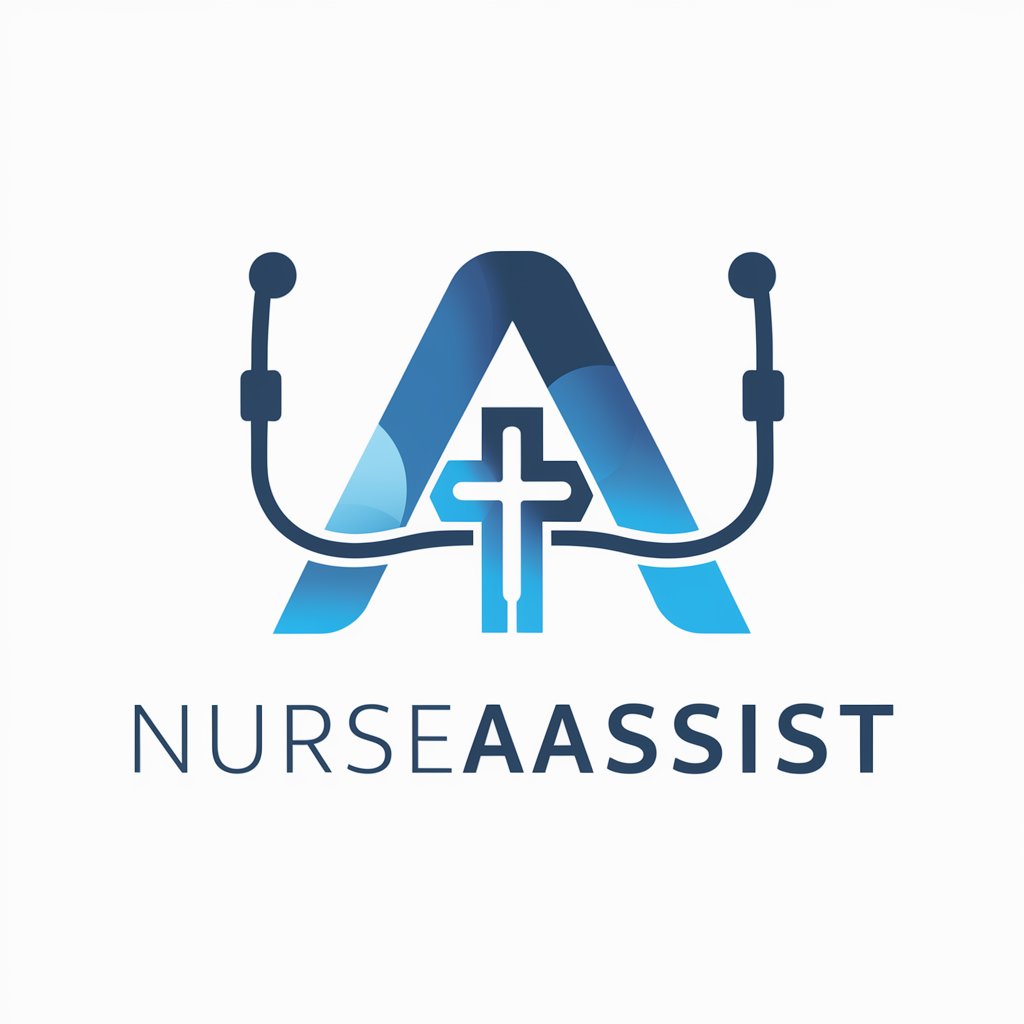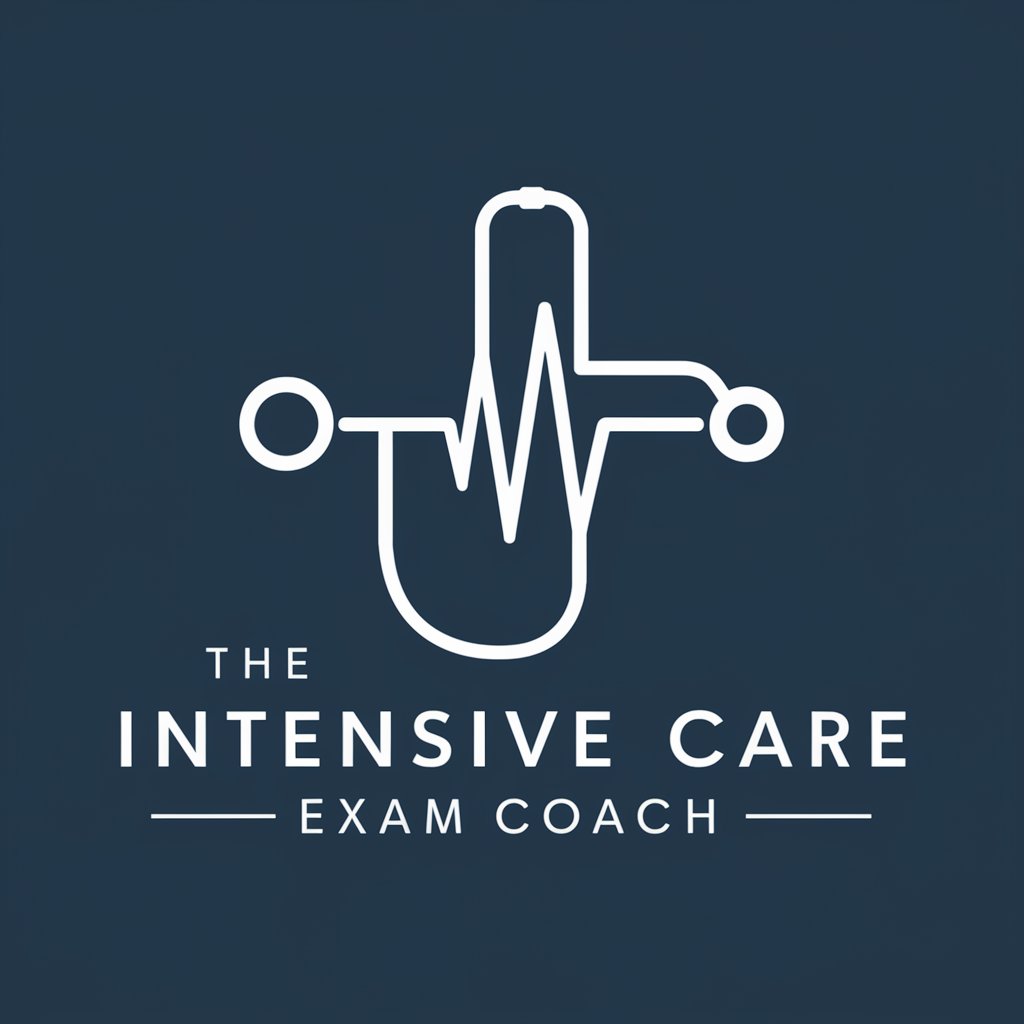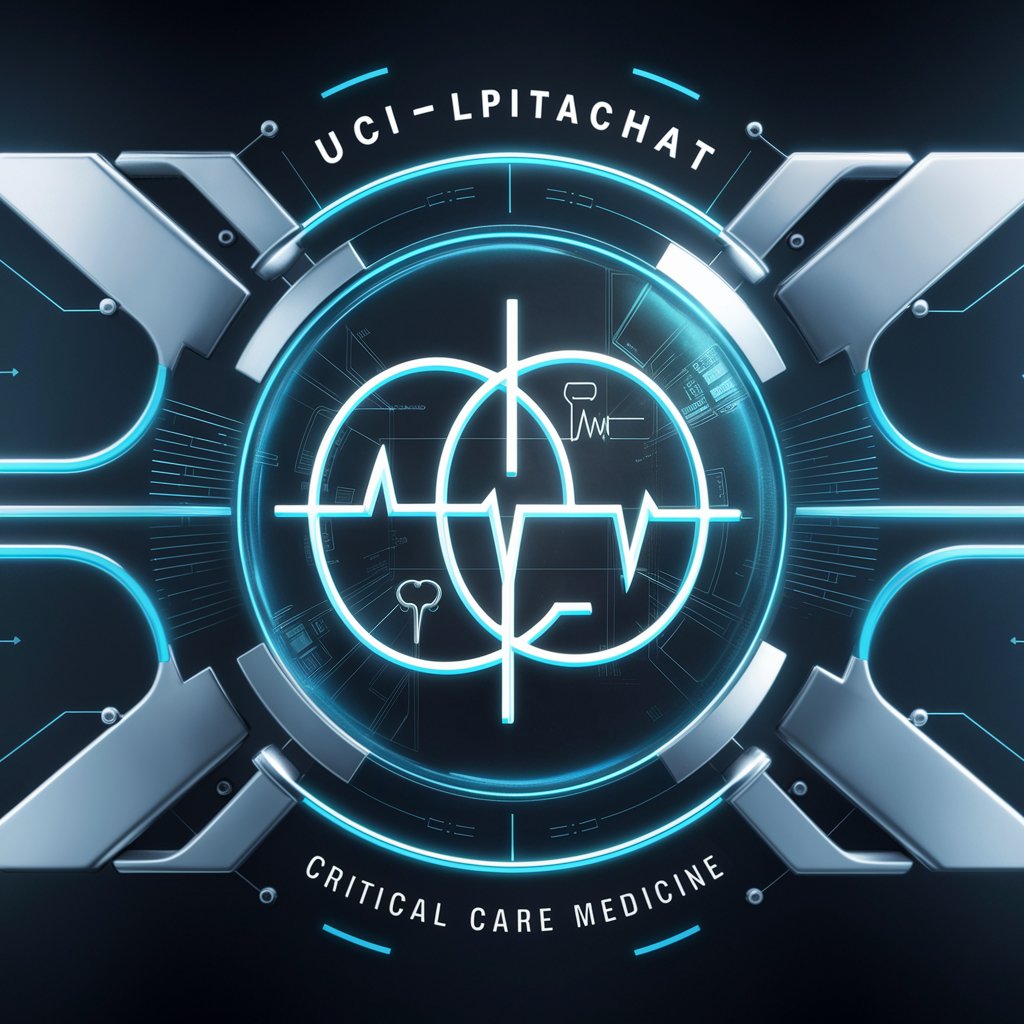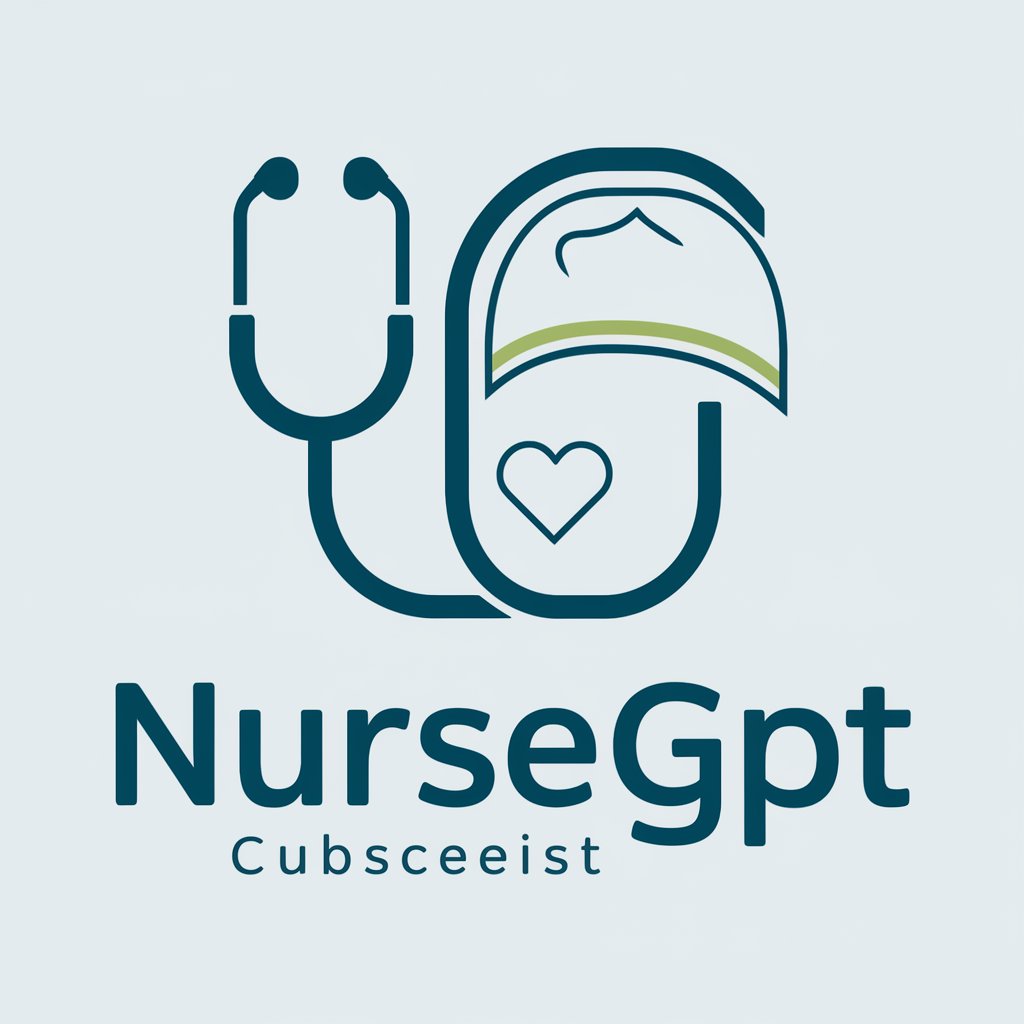
ICU Nurse Helper - Intensive Care Assistance
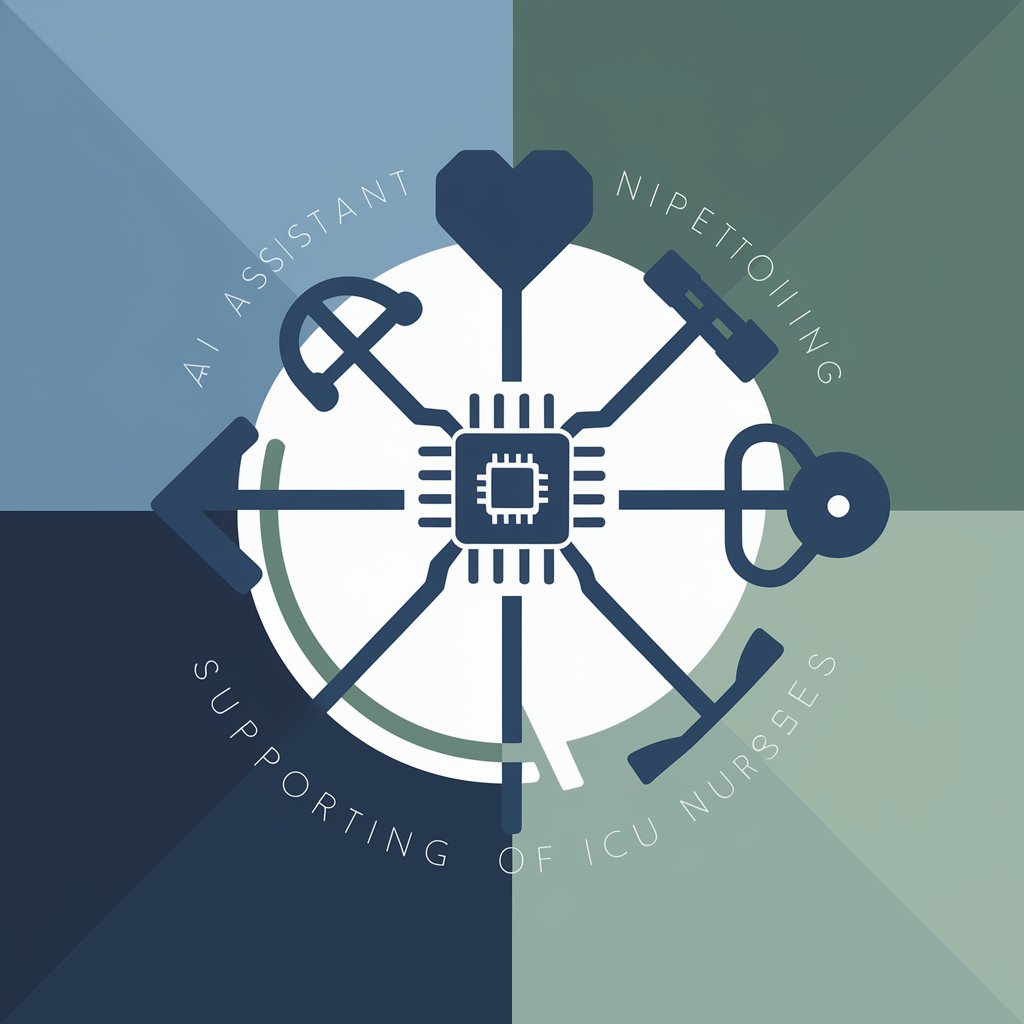
Hello, I'm here to assist with your ICU nursing needs.
Empowering Nurses with AI-Powered Insights
Can you explain the procedure for managing a patient with acute respiratory failure?
What are the best practices for infection prevention and control in an ICU setting?
How should I assess and document neurological status in critical care patients?
What is the recommended approach for interpreting arterial waveforms in ICU patients?
Get Embed Code
Introduction to ICU Nurse Helper
ICU Nurse Helper is designed to assist nursing professionals, especially those working in intensive care units, by providing comprehensive information on clinical procedures, patient care techniques, and best practices in intensive care nursing. It supports the development and enhancement of nursing competencies in critical care scenarios, emphasizing safety, evidence-based practices, and adherence to standard medical protocols. For instance, an ICU nurse can consult ICU Nurse Helper for a step-by-step guide on managing a patient with acute respiratory failure, including assessment techniques, ventilation strategies, and monitoring protocols. Powered by ChatGPT-4o。

Main Functions of ICU Nurse Helper
Clinical Procedure Guidance
Example
Providing a detailed explanation of how to perform endotracheal intubation, including the preparation, procedural steps, and post-procedure care.
Scenario
When an ICU nurse faces an emergency situation requiring intubation, they can refer to ICU Nurse Helper for a quick refresher on the procedure, ensuring the process is conducted safely and effectively.
Patient Care Techniques
Example
Offering insights on the best practices for managing patients with septic shock, including fluid resuscitation, antibiotic administration, and hemodynamic monitoring.
Scenario
An ICU nurse treating a septic shock patient can use ICU Nurse Helper to verify the latest guidelines and recommended practices to ensure optimal patient outcomes.
Interpretation of Clinical Data
Example
Guiding nurses on how to interpret arterial blood gas results and adjust ventilatory settings accordingly.
Scenario
ICU Nurse Helper assists nurses in understanding complex ABG results, enabling them to make informed decisions about ventilatory adjustments for patients with respiratory distress.
Ideal Users of ICU Nurse Helper
ICU Nurses
ICU nurses are the primary users, benefiting from instant access to a wealth of information that enhances patient care, supports clinical decision-making, and fosters continuous learning in the fast-paced ICU environment.
Nursing Students
Nursing students specializing in critical care can utilize ICU Nurse Helper as an educational tool to supplement their clinical training, preparing them for real-world ICU scenarios.
ICU Nurse Educators
Educators can leverage ICU Nurse Helper to provide up-to-date, evidence-based content in their curriculum, ensuring that students and trainees are learning the most current practices in critical care nursing.

How to Use ICU Nurse Helper
1
Visit yeschat.ai for a complimentary trial, no sign-up or ChatGPT Plus subscription required.
2
Identify your specific need or question related to ICU nursing practices, such as patient care techniques, medical procedures, or critical care guidelines.
3
Input your question into the chat interface clearly and concisely to ensure a precise response from ICU Nurse Helper.
4
Review the provided information and apply it within your clinical practice, always considering the context and specificity of your patient's condition.
5
For complex inquiries or further clarification, engage in follow-up questions or consult the detailed guidelines and competency frameworks available within ICU Nurse Helper's knowledge base.
Try other advanced and practical GPTs
Theses Physical Sciences UK
Empowering Research with AI

Patent Explorer
Navigating innovation with AI-powered insights

如果你需要有个人说说话(Ruguo Shuohua)
Empathy at the Heart of AI

EduBuddy
Empowering Learning with AI

مدقق لغوي
Enhancing Text Clarity with AI

Cold Feat
Dive into wellness with AI-powered cold plunging advice.

Tax Advisor
Simplify Your Taxes with AI

Hey Mama meaning?
Decipher Language, Discover Culture
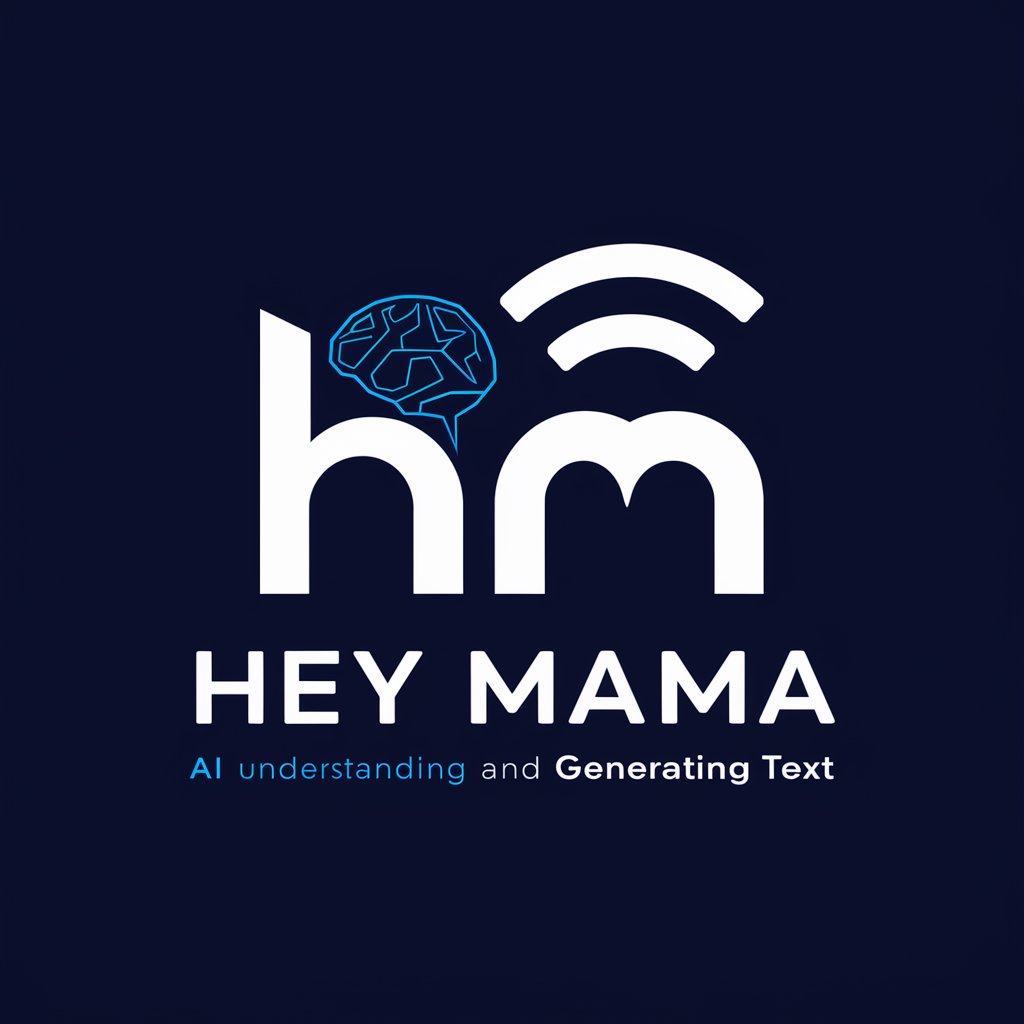
Happiness Classroom
Elevate Your Mind, Body, and Spirit

Your French Teacher
Master French with AI-Powered Practice

Intimate Relationship Maker
Deepening connections with AI-powered intimacy.

Aries Advisor
Empower Your Ambitions with AI

Frequently Asked Questions about ICU Nurse Helper
What is ICU Nurse Helper?
ICU Nurse Helper is an AI-powered tool designed to assist nursing professionals in intensive care units by providing information on clinical procedures, patient care techniques, and best practices in critical care nursing.
Can ICU Nurse Helper provide real-time assistance?
Yes, ICU Nurse Helper offers real-time assistance for inquiries related to ICU nursing practices, leveraging up-to-date clinical guidelines and evidence-based practices.
Is ICU Nurse Helper suitable for educational purposes?
Absolutely, ICU Nurse Helper serves as an excellent educational resource for nurses, nursing students, and educators by offering detailed explanations of medical concepts, care plans, and critical care protocols.
How does ICU Nurse Helper ensure the accuracy of its information?
ICU Nurse Helper is built on a foundation of trusted medical sources, clinical guidelines, and competency frameworks, ensuring that the information provided is accurate, reliable, and aligned with current medical standards.
Can ICU Nurse Helper help with specific patient cases?
While ICU Nurse Helper can provide general guidance and information, it is designed to support rather than replace clinical judgment. For specific patient cases, users are encouraged to consult with qualified healthcare professionals.

